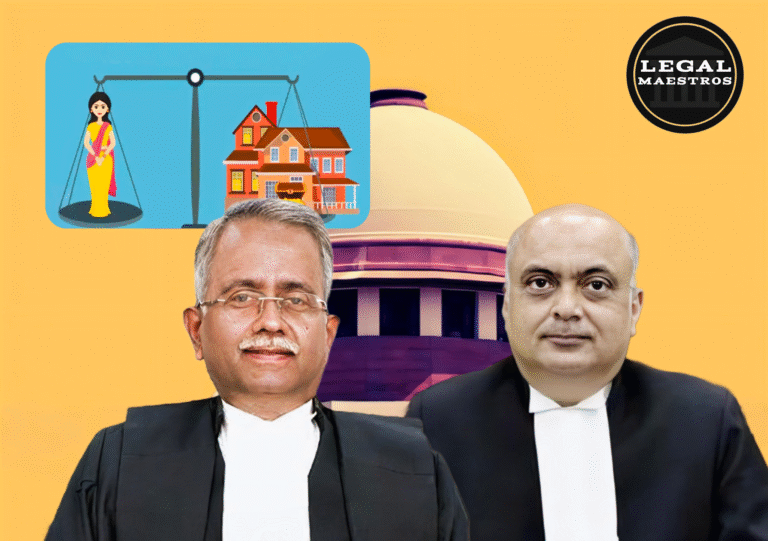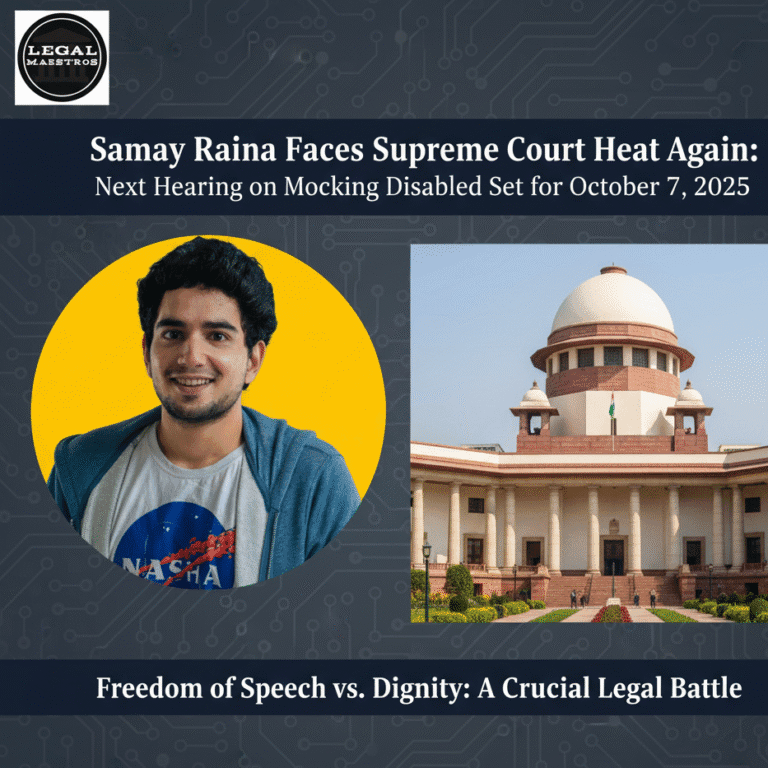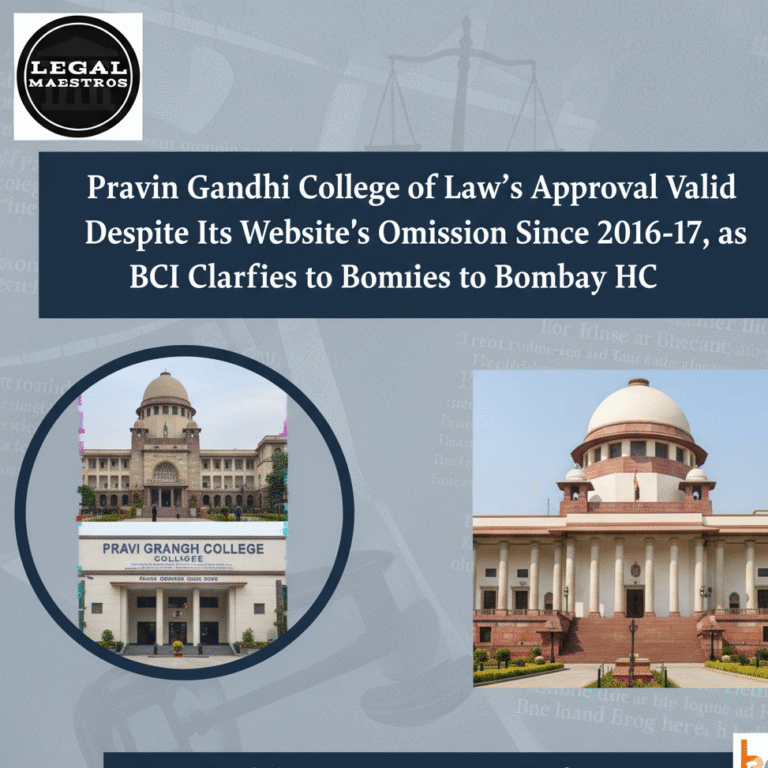
In an important ruling, the Supreme Court of India, recently, ruled on an important issue of human rights of prisoners who are disabled. Such a landmark ruling as a result of a case in which a physically challenged advocate suffered in the course of his imprisonment, raises serious importance to reforms that need to be brought to the prison system in India. This decision of the court by placing an emphasis on the basic right of dignity and good treatment of all inmates and disabled patients, conforms with national laws and international human rights obligations.
Background of the Case
L. Muruganantham, the advocate involved in the case, was a person with a severe locomotive disability (Becker Muscular Dystrophy) and the related mental problems. In a criminal trial, based on an accusation of his paternal uncle, he was accused of a case of property dispute. In February 2020, Mr. Muruganantham was detained and he was kept in Central Prison, Coimbatore in ten days. Having spent time in custody, he claimed that prison authorities have not supplied him with sufficient food, medical and any other needs depending on his disability. He also argued that as a result of this negligence his health was once again deteriorating.
In the first case, he was directed to pay compensation of Rs. 1,00,000/- by the State Human Rights Commission (SHRC) as its commission held that his arrest was illegal. Nevertheless, it did not detect any violation of human rights in the prison authorities. Angered by this, Mr. Muruganantham filed an appeal to High Court who further added as compensation 5,00,000/- to illegal arrest and police harassment. Similar to the SHRC, the High Court did not attribute the situation when people violated his human rights during treatment at the jail directly to the fault of the prison authorities but rather to the institutional weaknesses. This prompted Mr. Muruganantham to move to the Supreme Court so that he could be badly compensated and force changes in the system to make sure that the rights of the disabled prisoners are guaranteed.
Keeping Questions in front of the Supreme Court
The Supreme Court held in mind two important questions. First, was the compensation that was given to him by the High Court adequate and did it deserve any increment? Second, in a larger context, the court checked whether there are sufficient facilities to the disabled prisoners in the prisons of Tamil Nadu, as per provision in regard to the relevant laws.
Compensation in Perspective of the Court
The Supreme Court affirmed the decision of the High Court regarding the amount of compensation that is Rs. 5,00,000/- Trusting that Mr. Muruganantham was not provided all the desirable medical and food amenities, the court pointed out that Mr. Muruganantham was accommodated in the prison hospital and some extra facilities were provided to him keeping in view of his disability. The court did not blame prison staffs because they committed something negligible but because there was no special provisions such as protein rich food because of the size of the prison due to cost restrictions. Thus, those failures, although deplorable, were not deemed as direct infringements of human rights, and were not the fault of the jail authorities subsequently. The court emphasised that although those in prison have a right to have enough, nutritious, and medically viable food, a right to select their own food is not one of them.
Infrastructural Problems in the Prison Establishments
The case because of the Supreme Court judgment paid an important role in a larger problem the inadequacy of prison facilities of the handicapped. The court was alarmed with the so-called systemic neglect of the Indian prison infrastructure and operations. It brought out the fact that prisons, which are historically created to cultivate rigorous discipline, usually do not have even the most fundamental accessibility as well as protocols that the disabled prisoners might need.
The court observed that the majority of prison structures are physically inopportune and hence prisoners with mobility, sensory, or cognitive limitations cannot get to the toilets, feeding places, or health institutes. Disability of the prisoners is handled without care and nurturing by the trained hand and the policy; hence, unable to perform normal daily hygienic issues like bathing and dressing therefore causing indignity and health repercussions. The court declared the nature of these issues being not only administrative error but a breach of basic fundamental rights of a person under the Indian constitution in article 14 (equality or treatment before law) and article 21 (protection of life and personal liberty).
Even the Rights of Persons with Disabilities Act, 2016 (RPwD Act, 2016), which, among others, requires the State to provide healthcare and non-discriminatory treatment to disabled persons among others, was cited in the judgment. In addition, it highlighted the commitments of India to the United Nations Convention on the Rights of Persons with Disabilities (UNCRPD), which condemns cruel and inhuman treatment, or treatment degrading to disabled respectively in custody. The court emphasized that the limitations of logistical or financial nature cannot permit exclusion of providing healthcare of the same level as provided in the general population (example: physiotherapy, psychiatric care, and assistive devices).
Prescriptions to Reform
To resolve these systemic deficiencies, which are fatal, the Supreme Court has provided a set of very particular and broad-based directions to the State:
- revision and Amendment of Prisons Manual: The State Prison Manual should be revised and amended in six months to meet the provisions of the RPwD Act, 2016, and the UNCRPD. A new provision has to be introduced to prevent discrimination and ensure that disabled prisoners should be treated equally and reasonably accommodated. The updated manual should be posted in all prisons.
- Sensitization and Training Programs: Sensitization and training programs on rights and requirements of people with disabilities are to be carried out among police personnel, corrections department and the staff of medical institutions, which is obligatory and free of cost.
- Accessibility Audits and Infrastructure: Access audit should be looked into all prisons so that it is fully accessible as per provisions of the RPwD Act, 2016 and national guidelines on universal accessibility.
- Reasonable Accommodations: Prisons should take reasonable accommodations of disabled prisoners by providing them with medical treatments, good nutrition, and an ideal environment adequate to meet their needs.
- Data Collection: The State should have and refresh the thorough data on the disability state of incarcerated people that contain the information on the accessibility, replacement of the effortful care, and health needs. This information must be published, but not uploaded at the expense of privacy in the name of transparency and accountability, following Article 31 of UNCRPD.
- Monitoring Committee: A monitoring committee needs to be formed to periodically undertake the inspection and the report on its compliance should be done within three-month intervals.
- Engagements with the Civil Society: Policy formulation should be conducted through periodic consultations to the disability rights organizations in order to formulate truly inclusive policies.
- Compliance Report: Director General of prisons would have to submit a detailed report on compliance before the State Human Rights Commission within a period of three months narrating all the measures which have been undertaken.
This supreme court ruling acts as a strong reminder to the constitutional and international duty that India owes to the most vulnerable strata of the society, which includes the group of disabled persons in prisons. It highlights the fact that prisons are not just punishment facilities but they are institutions where the human respect and rights have to be respected. The overall mandates that the court has issued are to bring about the highly needed systematic change, whereby the prison system should undergo an evolution process so that it can exercise the rights of the disabled inmates as well as offer them with the care that they require to attain conditions in the healthier and the eventual rehabilitation position. This decision is one of the essential animal steps towards developing a more just, humane and inclusive criminal justice in India.
For any queries or to publish an article or post on our platform, please email us at contact@legalmaestros.com.







